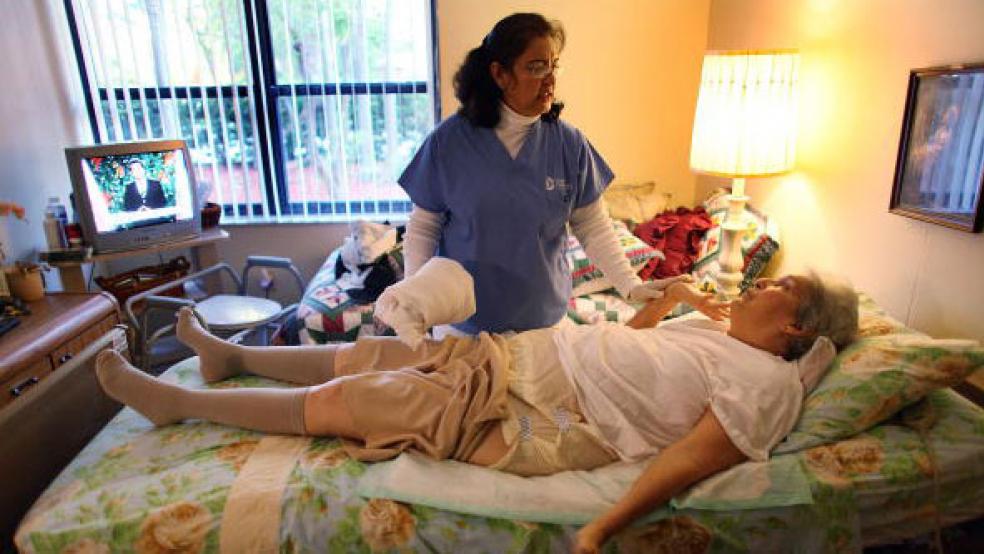Vice President Kamala Harris wants Medicare to start covering the cost of long-term, in-home care for elderly Americans.
Appearing on ABC’s “The View” Tuesday morning, Harris outlined her proposal, which is aimed at the millions of American voters who find themselves in the “sandwich generation,” taking care of both older parents and younger children at the same time. Harris said her experience of caring for her mother after she was diagnosed with cancer made her aware of the difficulties facing millions of families.
“There are so many people in our country who are right in the middle,” Harris said. “They're taking care of their kids and they're taking care of their aging parents, and it's just almost impossible to do it all, especially if they work.”
Medicare generally does not cover the cost of full-time, long-term caregivers such as home health aides. Long-term care is provided through private insurance plans, which are expensive and cover only a fraction of the population, or through Medicaid, which is available only to low-income households — a requirement that forces some retirees to spend virtually all of their savings until they qualify. Harris said she wants to remove pressure on families to “feel like they’re going broke in order to qualify for Medicaid assistance.”
While the Harris campaign provided few details about how the program would operate, Harris said funding could come from savings generated by negotiating lower prices for a wider variety of prescription drugs covered by Medicare — a program that started this year under the Inflation Reduction Act. “We are going to save Medicare the money, because we're not going to be paying these high prices,” she said.
A recent analysis from the Brookings Institution noted that a “modest” home care program would cost roughly $40 billion a year, though much depends on how the program is rolled out. According to the Brookings analysis, key questions for the shape and cost of the program include eligibility rules, cost-sharing requirements, standards of care and potential savings from reduced home care spending under Medicaid.
“We can’t define where the lines should be drawn—that’s Congress’s job—but our analysis suggests that there are programmatically tractable, fiscally feasible ways to add a home care benefit to the Medicare program,” the Brookings analysts concluded.
Of course, fiscally feasible does not mean politically practical. Harris’s proposal would likely face stiff resistance from Republicans opposed to expanding Medicare benefits on both fiscal and ideological grounds. As The Washington Post notes, President Joe Biden proposed a massive expansion of home and community care services in Medicaid during the pandemic, when there was significant interest in alternatives to institutional care, but the plan failed to get through Congress.




